AVE MARIA, Fla. – Toby and Nicole Mickelson were thinking about moving from Minnesota even before they heard about school choice in Florida. The weather, the politics, and the taxes were all getting to be too much, plus Nicole’s parents had recently become snowbirds with a winter home in southwest Florida.
Still, it wasn’t clear which warmer, less expensive, more conservative state they might move to.
But then a friend in Florida posted praise on Facebook for the state’s private school choice scholarships, which the Florida Legislature and Gov. Ron DeSantis had made available to every single student, beginning in the 2023-24 school year and are administered by Step Up For Students.
Toby and Nicole were stunned.
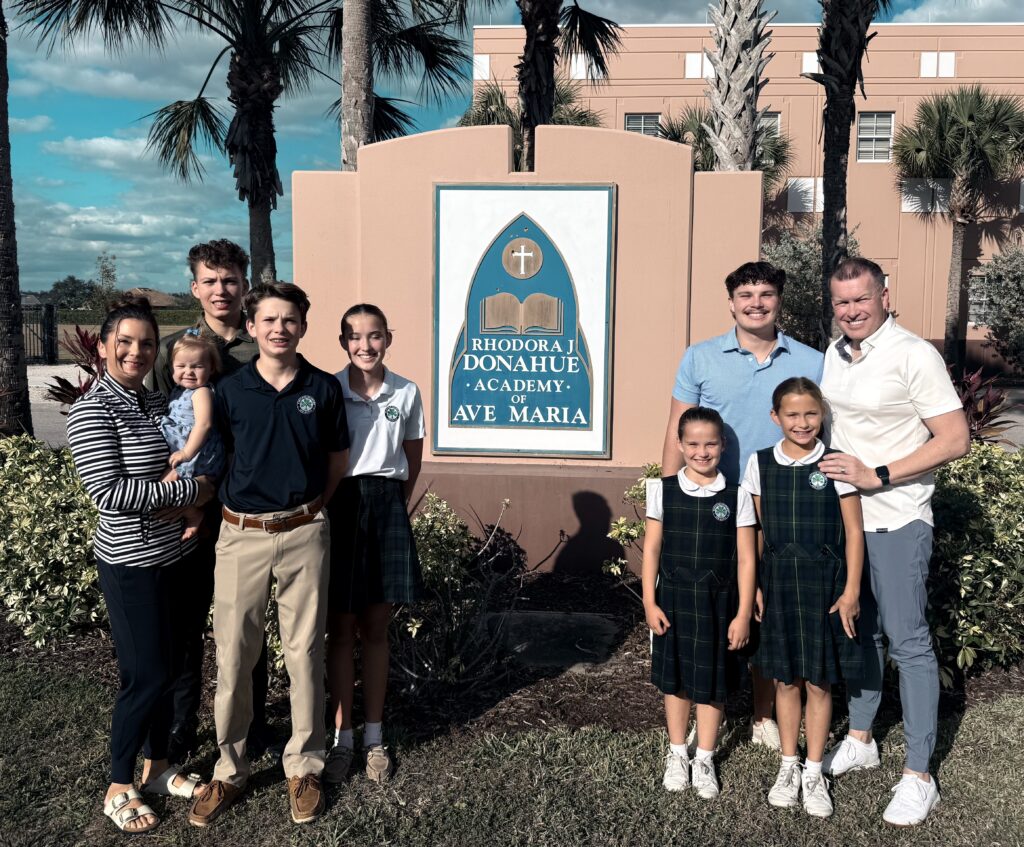
“I said, ‘Can you believe this even exists?’ Nicole said, “He said, ‘Are you kidding me?’ “
“Once we found out about the Step Up money, it (Florida) was a shoo-in.”
This was in the summer of 2024.
In early 2025, the Mickelsons applied to get their kids into Rhodora J. Donahue Academy, a classical Catholic school in Ave Maria, a predominantly Catholic community about 30 miles from Naples. In April 2025, their kids were accepted.
Incredibly, the family found the perfect house in Ave Maria and sold their home near Minneapolis almost simultaneously. By July, they were Floridians, with a month to spare before school started.
“We pinch ourselves every day,” Nicole said. “We’re so grateful to be here.”
The Mickelsons aren’t alone.
The Sunshine State has become a magnet for a whole new breed of transplants. We don’t have good numbers to quantify the trend, yet, but it’s easy to find families who moved here wholly or in part because 1) Florida offers generous school choice scholarships to every family, and 2) The education landscape is increasingly diverse because of all that choice, with more options for more families all the time.
At one school for students with special needs in Jacksonville, the families of 24 students — 10% of the entire student body — moved to Florida to access the school and the scholarships. At Donahue, according to the Diocese of Venice, at least two dozen students fit that description. Meanwhile, at a school for students with autism in the Tampa Bay area, a half dozen families moved from other countries or Puerto Rico.
The Mickelsons said families in Minnesota who hear about Florida’s choice scholarships initially “don’t believe it,” Nicole said. “They think it’s too good to be true.”
But, as the Mickelsons learned, they’re real.
Toby is an occupational safety manager for a commercial kitchen company and a member of the Air Force Reserves. Nicole is the vice president of sales for her family’s long-distance trucking business.
In Minnesota, they sent their kids to classical Catholic schools. For a big family, that wasn’t a breeze financially. Tuition per child averaged nearly $10,000 a year. “You can’t sustain that,” Nicole said.
Commuting was a challenge, too. One school was 20-30 minutes each way; the other, 30-40 minutes. “We lived in our cars,” Toby said.
The Mickelsons had some familiarity with Florida.
Four years ago, Nicole’s parents bought a home in Fort Myers, where they live for half a year. And three years ago, the Mickelsons visited Ave Maria University while they were checking out colleges with their oldest child. The university is also in the community of Ave Maria.
It was then that they learned about Donahue Academy, which is also a classical school.
Classical schools “teach a lot of classic books, like Dante’s ‘Inferno,’ not New Age-y things,” Toby said. For Donahue to also be a classical school was “icing on the cake.”
At the time the Mickelsons applied, Donahue had 440 students and a long waiting list. The Mickelsons weren’t sure they had a shot. But thankfully, the school was also in the midst of a huge expansion that would allow it to serve 615 students.
Donahue could be the poster child for another Florida-centered education trend, the revival of Catholic schools. Unlike Catholic schools in much of the country, Catholic schools in Florida are growing again. No region of Florida is showing more growth than the Diocese of Venice, which includes the cities of Fort Myers, Naples, Sarasota, and Bradenton.
“My husband said, ‘Let’s apply, let’s do the paperwork. If they get in, that’s our sign to move,'" Nicole said.
After praying and fasting, they got a thumbs up.
The Mickelsons have seven children. The oldest is in college. The next-oldest is homeschooled. Four attend Donahue, in grades 9, 7, 5, and 2, respectively. The youngest is a year old.
Nicole said school choice wasn’t the only reason for the move to Florida, but she put it at the top of the list, followed by politics, taxes, weather, and her parents living nearby. She said Donahue probably wouldn’t have been affordable without the choice scholarships.
In Ave Maria, the Mickelsons no longer worry about the long commutes, either. They live a few blocks from the school, so the kids bike there. “It’s like a dream,” Nicole said.
The plan is for the kids to graduate from Donahue, then attend Ave Maria University.
Nicole and Toby are both able to work remotely. And now that everything in Florida is working out so well, word is getting back to their friends in the Gopher State.
One family recently pulled their kids out of Catholic school because they could no longer afford it. For now, they’re homeschooling. But thanks to school choice, Florida looks mighty enticing.
Said Nicole, “I have a lot of Minnesota friends who want to move to Florida now.”

Travis and Nikki Leck are seeking to defend and protect the Wyoming Steamboat Legacy Scholarship program from a lawsuit filed by the state teachers union. Their sons, Tanner, left, Carter, center, and Mason, right, attend a private classical school. Photo courtesy of the Leck family
Editor's note: This story has been updated to reflect the latest court ruling granting an injunction to block the release of funds to families while the lawsuit is pending.
Travis and Nikki Leck were thrilled to find a private school that challenged their sons academically and were looking forward to using a newly expanded Wyoming education choice scholarship to help pay for it. Now, a judge's ruling has left them and thousands of other families in limbo as the new school year approaches.
 “We would have never considered a private school. It just isn't something most people in this part of the world do,” said Travis, a petroleum engineer who grew up in Montana.
When the time came, the two public school graduates looked for a public school best suited to the needs of their oldest sons, Mason and Tanner. They found a gem: Fort Caspar Academy, a classical public school focused on high academic standards, high time on task, high expectations for behavior, strong parental involvement, logical thinking, and character development.
The school offered evidence-based reading instruction that included phonics, and math instruction grounded in a solid foundation of math facts, everything the Lecks expected.
Then came third grade. The family had the opportunity to move back to Cody, where they had lived off and on over the years. It's the gateway to Yellowstone National Park. Named after its founder, William F. “Buffalo Bill” Cody, it boasts a population of 10,305. The 2025 graduating class at Cody High School totaled 145.
Cody has one McDonald’s, one grocery store, and a Walmart. Elementary school options were about as limited as the retail offerings. Cody had five public elementary school options, two more than 20 miles out of town, compared with Casper’s 20. The Lecks tried the Cody public school for the twins and their youngest son, Carter, who had started kindergarten.
After a year and 11 days into the next school year, the Lecks realized that they preferred the classical approach to teaching and learning.
 “I never thought we would be at a private school, especially in Wyoming. However, being pro-classical education, especially in Cody, definitely makes me pro-school choice. We have exactly one chance to get our kids’ educational foundation right, and it matters.”
“I never thought we would be at a private school, especially in Wyoming. However, being pro-classical education, especially in Cody, definitely makes me pro-school choice. We have exactly one chance to get our kids’ educational foundation right, and it matters.”
The Lecks decided to look elsewhere for the rigor they wanted for their kids, advanced math learners who are now 12 and 9. They found it at Veritas Academy, a private classical school that used the same standards, curricula, and methods as Fort Caspar Academy. Tuition for the upcoming year will be $8,000 per student.
So, they pulled back on discretionary spending to make Veritas Academy possible. Nikki also returned to her job in marketing full time.
In March, the family got hope for financial relief when the Wyoming Legislature passed the Wyoming Steamboat Legacy Scholarship Act. The education savings account program offers families $7,000 annually for income-eligible students in pre-kindergarten, with universal eligibility for students in K-12. Parents can direct the funds for tuition, tutoring, and other approved educational expenses.
The Lecks were among more than 4,000 families approved for scholarships.
Two weeks before the state was set to begin distributing funds, the Wyoming Education Association and nine parents sued the state to halt the program, arguing that it is precluded by the state’s constitutional commitment to district schools and that it violates a constitutional ban on appropriations to private entities, even though money is appropriated only to the state Department of Education and administered by the state superintendent of public instruction, according to the legislation. The state’s attorney, Mackenzie Williams of the Wyoming Attorney General’s Office, said during a recent court hearing that school funds are not used to finance the ESA program.
Travis and Nikki, who have advocated for parent-directed education in emails to lawmakers, joined forces with EdChoice Legal Advocates and the Institute for Justice as one of two families intervening to defend and protect the program.
On June 27, a district judge granted what he called a “narrowly tailored” injunction that barred any money from going to families while he decided whether to pause the program until the lawsuit was decided. On Tuesday, he issued a written order granting the plaintiffs' request for a preliminary injunction blocking the release of any funds to families until he rules on the case. However, he allowed other operations to continue until he decides whether to issue a preliminary injunction that would pause the whole program while the lawsuit is resolved. Wyoming State Superintendent of Public Instruction Megan Degenfelder said her office is working with the state attorney general to look for options to challenge the injunction. Attorneys for the intervening families said Wednesday they plan to do the same.
"The court's decision to limit educational opportunity for Wyoming families is contrary to the Wyoming Constitution," said Thomas M. Fisher, executive vice president and director of litigation for EdChoice Legal Advocates. "We will seek to stay the injunction and appeal it as soon as possible."
The Lecks say they will find a way despite the latest ruling to keep their kids at Veritas Academy, though it won’t be easy.
However, they worry about those who aren’t as fortunate.
“I know there are a lot of other families that would like to go to Veritas this fall that it will probably hurt if funding is blocked,” Nikki said.
The Lecks said they do not oppose public schools. They graduated from their local public high schools and believe they received a good education. They never gave private school much thought until it became clear their kids needed something different from what that particular public school district offered.
They just think all families should have the right to choose what’s best for their children, whether that looks like a public school, private school, homeschool, or a combination of many options. Larger Wyoming communities like Casper, Cheyenne, and Laramie have publicly funded public and charter school classical school options that aren’t available in smaller communities.
Nikki hopes that the Steamboat Legacy Scholarship program, if it survives the legal challenge, will create an environment for entrepreneurs to provide more types of education. More is particularly important in rural areas like Cody, where choices are scarce and where families have little recourse if existing options are not the best fit.
“Really, a person’s only option if you don’t like what the public school is doing is to take them out and put them somewhere else,” Nikki said. “Wyoming’s scholarship program,” she said, “is one option to make that less financially challenging for anyone, regardless of location or income.”
Last week I had an opportunity to speak in Boise, Idaho, on school choice and the Arizona experience. In an interview on NPR, I addressed claims by choice opponents that Idaho “already has school choice.” I guess you could say I went full Depeche Mode in responding. I’ll explain why here, and I challenge you to try to keep that synthesizer music out of your head while you read on.
Families benefit from schools that are meaningfully diverse, proximate, and that have seats available in the grade levels appropriate for their children. The existence of choice schools is necessary but not sufficient: schools must be close enough to access and have seats available in the grade levels needed. The more schools you have, the more proximate schools you have, the less transportation challenges your families face.
The idea that Idaho, or for that matter anyone else, has “enough” K-12 choice seems highly questionable; in a demand-driven K-12 system families and educators continuously mold the clay of the education space. Educators develop new school models, such as microschools, and families sort through them.
The greater the meaningful diversity of schools proximate to families the better. Consider the Brookings Institution charter access map, showing the percentage of students with one or more charter schools operating in their ZIP code of residence:
In the 2014-15 school year, 47.3% of Idaho students had one or more charter schools operating in their ZIP code. This means 52.7% of Idaho students did not have a charter school operating in their ZIP code. Having a charter school in your ZIP code represents a minimalist measure of choice. Given the many types of charter schools and families’ needs for a good-fit school with seats available at their child’s grade level, having a nearby charter is not much more than a start. Moreover, charter schools themselves do not capture the full diversity of schooling.
Arizona began creating mechanisms for educators to create meaningfully diverse schools 31 years ago. The quasi-market revealed demand for a wide variety of schools. We learned that parents wanted classical education, rigorous math and science college preparatory schools, and schools focused on a great many things from the arts to the equine arts.
More recently, several charter and private schools focused on the education needs of students with unique needs have emerged. The private choice programs increase access to private schools. Far from having “enough” choice in Arizona, every school waitlist should be viewed as a policy failure.
Modern choice programs have expanded the possibility set for families. Under Arizona’s ESA law, high school students can use their accounts to attend community colleges and simultaneously obtain a high school diploma and an associate degree. Families sometimes team up to hire their own teachers. Families have only begun to scratch the surface of the possibilities.
And then there is this polling research to consider from EdChoice:
These polls indicate that certain types of schools are oversupplied, but it’s not the type that will become accessible if Idaho lawmakers pass a private choice program. Variety is the spice of life, and no state has yet come close to getting enough.
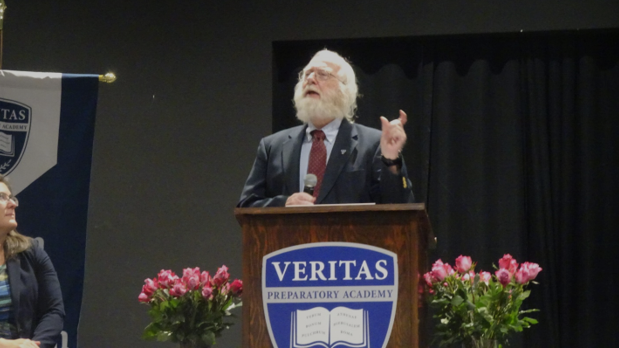
Mike Sullivan, who taught Classical Languages and Humane Letters at Veritas Preparatory Academy for 20 years, retires at the end of this school year. Before coming to Veritas, he was a private practice attorney and served the University of Minnesota in its Student Legal Services department after serving in the U.S. Army Intelligence corps as a translator and interpreter.
Veritas Preparatory Academy, a founding member of the prestigious Great Hearts Academy in the Phoenix metropolitan area, held a joyous retirement ceremony for one of its founding faculty members, Mike Sullivan, on May 20. Great Hearts recruited Sullivan, a 60-year-old attorney living in Wisconsin, to teach Latin and Greek.
Sullivan had enjoyed a career in the military followed by a legal career before finishing strong in the classroom for two decades. His most recent career holds a valuable lesson for policymakers.
Students, colleagues, and students who went on to became colleagues all related fond memories and valued lessons imparted by beloved sage-curmudgeon during the event. Veritas Prep’s first headmaster, Andrew Ellison, told of hosting the visiting Sullivan on a recruiting visit.
Ellison felt a growing sense of desperation over the course of the day, thinking he just had to have Sullivan join the faculty. Sullivan at one point told Ellison that he had been waiting all day for Ellison “to say something wrong” so he could get on a plane and go back to Wisconsin.
“But it hasn’t happened yet, and I don’t think it’s going to happen,” Sullivan said. Ellison described this as “the moment Veritas Prep was born.”
Policy decisions impact lives, sometimes in incredibly positive ways. It is worth noting that many states would not have allowed Mike Sullivan to launch his second career in teaching without jumping through a number of useless hoops. And, yes, I can demonstrate the uselessness of the hoops.
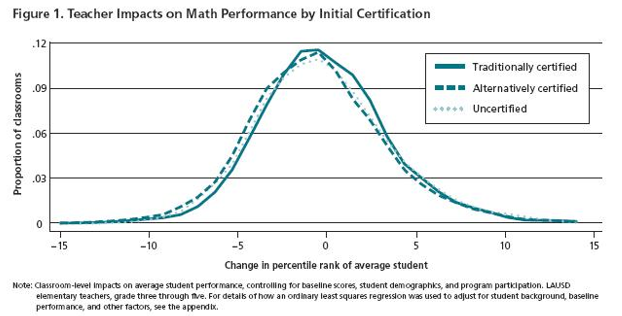 If you look very, very closely at this chart that comes from a study of student learning gains conducted by the Brookings Institution, you will see a dotted curve along with the line and dash curves. The three curves show the learning gains/declines from the students of traditionally certified teachers (the line curve), alternatively certified teachers (the dash curve), and finally from uncertified teachers (the dot curve).
If you look very, very closely at this chart that comes from a study of student learning gains conducted by the Brookings Institution, you will see a dotted curve along with the line and dash curves. The three curves show the learning gains/declines from the students of traditionally certified teachers (the line curve), alternatively certified teachers (the dash curve), and finally from uncertified teachers (the dot curve).
Notice the lack of any meaningful difference in the overall curves; they all have highly effective teachers and highly ineffective teachers. But also note the difference between a right side of the bell-curve teacher and left-side is gigantic. As explained by the authors of the Brookings study:
Moving up (or down) 10 percentile points in one year is a massive impact. For some perspective, the black-white achievement gap nationally is roughly 34 percentile points. Therefore, if the effects were to accumulate, having a top-quartile teacher rather than a bottom-quartile teacher four years in a row would be enough to close the black-white test score gap.
Arizona lawmakers wisely gave charter school leaders the flexibility to recruit from any of the three curves in search of highly effective instructors. Ipsi prudenter elegerunt!
Veritas Prep found Mike Sullivan practicing law in a distant state and had the flexibility to coax him into a next great career. The adoration of Sullivan’s students and colleagues seems like a much greater compensation than any provided by a law firm.
More Sullivan-like instructors are likely awaiting discovery at some unexpected place. Find them and get them in the classroom!
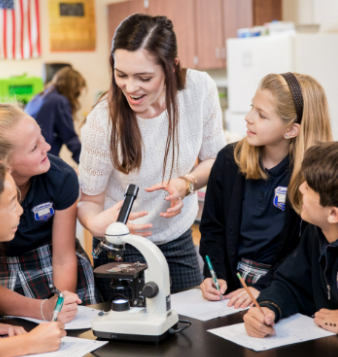
Great Hearts Academies, the leading provider of classical education in the country, is dedicated to serving families in the moral and intellectual formation of their children.
Editor’s note: This article from Rick Hess, resident scholar and director of education policy studies at the American Enterprise Institute, appeared recently on edweek.org. You can listen to a podcast with reimaginED executive editor Matt Ladner and Great Hearts Online executive director Kurtis Inforf here.
Great Hearts Academy launched in 2001 with 130 students. Today, it operates 33 classical K-12 schools serving more than 25,000 students in Arizona and Texas.
At a time when there’s a lot of interest in classic liberal arts school models, and with Great Hearts seeking to expand its offerings via pre-K and online offerings, it seemed like a good time to chat about their work with CEO Jay Heiler, who’s been on the board of Great Hearts since its founding and spent more than a decade as chair of the Arizona Charter Schools Association.
Here’s what he had to say.
Rick: So, Jay, what is a Great Hearts Academy? What makes it distinctive?
Jay: Great Hearts academies are grounded in an ethos of education as formation of the virtuous human person, not only in knowledge and intellect but also of the heart and character. We long and educate for a more philosophical, humane, and just society, but we consider this work as apart from the controversies of the day or the continuous political and polemical theater.
Our school model features a rich liberal arts curriculum and a culture that fosters friendship, marked by a common love of the true, the good, and the beautiful.
Rick: Can you talk a bit about what it takes to make that kind of curricular model work?
Jay: Great Hearts academy life is simple to understand in terms of what it includes and what it excludes. It includes the Great Books, the best of what has been thought and written for millennia, Socratic pedagogy grounded in conversation, and a culture of friendship.
It excludes screen time and pop culture, on the supposition that students are now immersed in an overabundance of those things outside of the school day.
Rick: Some critics have argued that Great Hearts’ value-based, classical model isn’t a good fit for all students. What’s your response to such critiques?
Jay: Great Hearts is an emphatically anti-elitist organization because its central assertion is that the best education for some is the best education for all, and our purpose is to make it accessible to all, so that all might have the chance to lead a great life and do things that matter to them and our society.
Classical education begins and succeeds by grounding itself in timeless things that do not change. It disabuses young minds from the common tendency to see one’s own time as safely evolved beyond the perils and failures of earlier times. It refutes the cult of novelty. It opens the mind by engaging with centuries of human thought and conversation, disaster and triumph, error and recovery, insight, and inspiration.
For these reasons, we believe every child would benefit from a Great Hearts classical education, and we go to work every day to reach as many families as possible.
Rick: How did Great Hearts get started?
Jay: In the early years of charter schools, the prevailing vision was “let a thousand flowers bloom.” Our original insight was that this is not how education would be reformed, accounting for goodwill or the market. So, we wanted to take the best possible education and replicate and then scale it. We began 21 years ago with 130 students in a leased church classroom building, improved for occupancy via some borrowed funds, with grades 7 through 9.
Rick: What’s your network look like today?
Jay: Since our founding, Great Hearts has grown to become the leading provider of classical education in the U.S., with more than 25,000 K-12 students in public, nonsectarian charter schools and now a new preschool offering as well: Young Hearts.
We have accomplished this as a nonprofit organization. We currently operate in Phoenix, San Antonio, Dallas, and Fort Worth. Amid the travails of the pandemic, we also launched Great Hearts Nova, our innovation-centric division which includes fully online charter academies in Arizona and Texas and microschools.
To continue reading, click here.
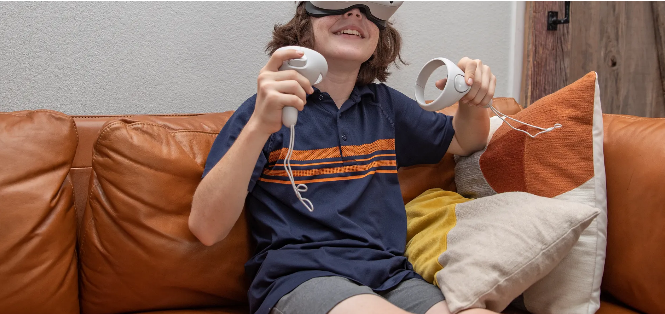
Optima Classical Academy, a tuition-free virtual reality public school for Florida students in grades 3-8, uses virtual reality technology to solve the challenges of disengaged, unsocialized scholars.
Editor’s note: You can read more about Optima Classical Academy here.
On this episode, Tuthill interviews former Collier County School Board member Donalds, who is president and CEO of the Optima Foundation, a network of charter schools serving more than 3,000 students. The organization is set to launch Optima Classical Academy this fall, the nation's first virtual reality charter school, for students in grades 3-8.
Tuthill and Donalds discuss how the pandemic sparked inspiration for the revolutionary new school that will offer a classical liberal arts curriculum and creative virtual “field trips” that will give students the opportunity to travel to outer space and under the sea.
They also provide a glimpse into how education savings accounts could play a critical role in giving greater access to families who want their children to experience the virtual reality academy via unbundling of educational services.
"It is really amazing the number of things that can be done and the creativity of our teachers ... They are over-the-moon excited about the possibility of teaching in virtual reality."
EPISODE DETAILS:
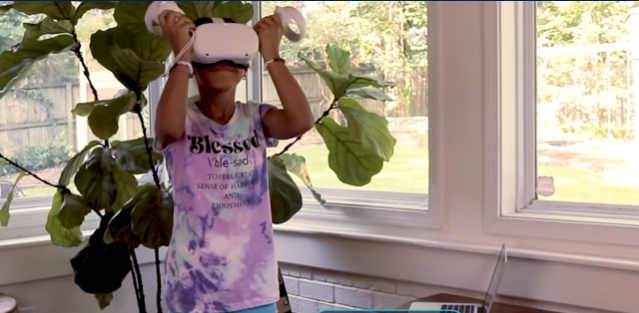
Billed by its founders as “the world’s first virtual reality charter school,” Optima Classical Academy is expected to open in August with 1,300 students in grades 3-8. The academy intends to expand classes up to 10th grade for the 2023-24 school year.
Editor’s note: Erika Donalds, education choice advocate and president and CEO of the Optima Foundation, spoke earlier this week with reporters at the Daily Signal about the intersection of virtual education and classical education. You can read reimaginED’s interview with Donalds here.
Classical education is a trusted model of learning. Virtual reality is a new technology still being fully developed. Despite the view of some that the two could be in conflict with each other, Erika Donalds disagrees.
“Classical education … is content-based, and [virtual reality] is the perfect way to deliver that content,” says Donalds, president and CEO of the Optima Foundation.
Donalds established the Optima Foundation, which has grown to be a network of charter schools, to give parents better education options for their children. After the pandemic, Donalds realized that some parents and students preferred an at-home model, but online education fell short of providing students with a strong education.
Virtual reality allows teachers and students to meet live in a virtual space from home, she says.
Through virtual reality, children “actually go to Mars, they go to the lunar landing, and they’re there when it happens in virtual reality,” Donalds says.
Donalds joins “The Daily Signal Podcast” to discuss the ways in which virtual reality can add to and expand classical education.
You can listen to the podcast here.
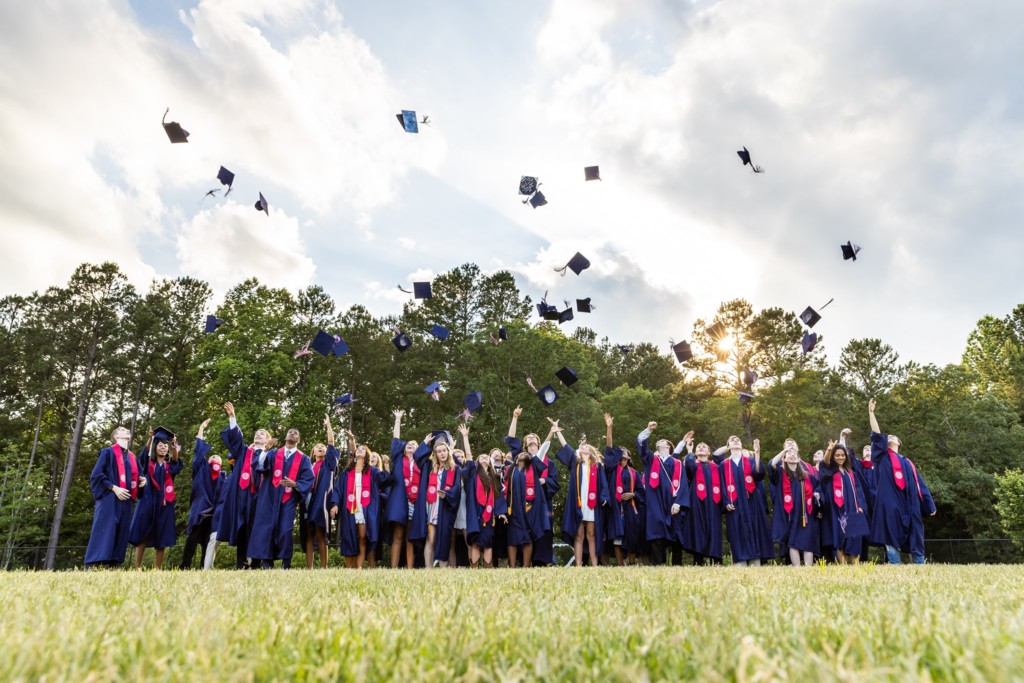
Seniors at Thales Academy in Roseville, North Carolina, celebrate graduation.
On this episode, reimaginED senior writer Lisa Buie talks with Bob Luddy, founder and president of CaptiveAire, a commercial ventilation system company in the Raleigh, N.C. area, and founder of several schools.
The latest of these, Thales Academy, which Luddy started in 2007 in the CaptiveAire corporate office, enrolls 5,800 students at 13 locations. Two additional campuses are set to open this school year, with others in the pipeline for 2024 and 2025.
In addition to those in the Tar Heel State, there are Thales Academy sites in Virginia and Tennessee, with two campuses on the horizon in South Carolina. All told, Luddy has 15 more schools under development.
Beyond Thales Academy, Luddy developed Thales College, which is opening this school year and offers four-year degrees in classical education, engineering and entrepreneurship for a total cost of about $32,000.
Luddy talks about his deep commitment to education and how his model makes it possible for him to offer a high-quality education at the lowest possible cost.
“The classic curriculum, as I describe it, is learning from the masters. So, all the way back to Aristotle until now, we learn what the master thinkers have taught us, which leads to good communication skills, an understanding of history, of philosophy, and culture, and produces excellent students and thinkers who develop good judgment … Someone can be very smart and get through college, but if they don’t have a good character they’re going to fail. So, character formation is very important, and has been since the time of Aristotle.”
EPISODE DETAILS:
RELEVANT LINKS:
https://www.thalesacademy.org/
https://www.nifdi.org/videos/siegfried-zig-engelmann.html
https://www.manhattan-institute.org/classical-education-attractive-school-choice-parents
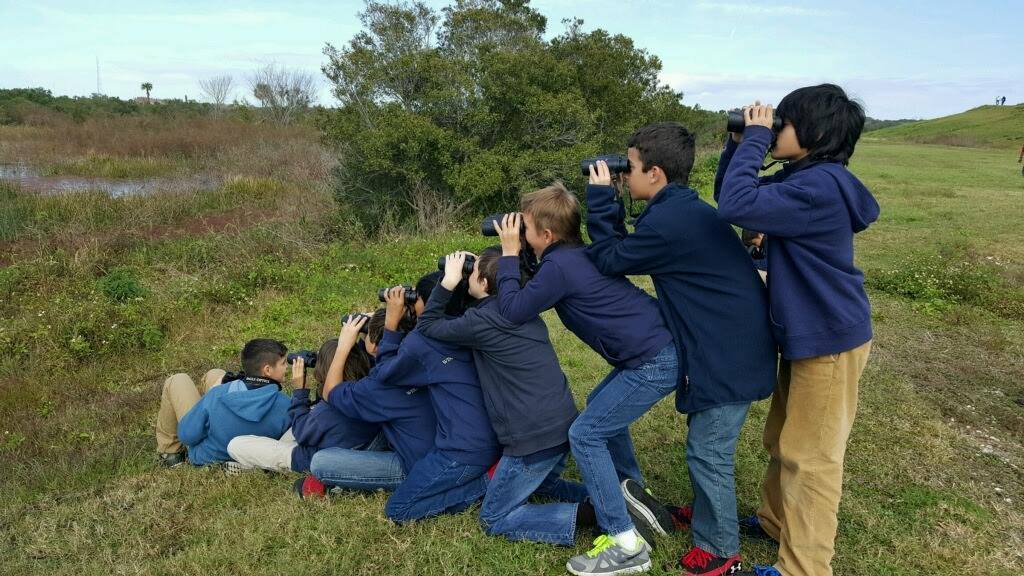
The Classical Academy of Sarasota, which has experienced a growth surge in recent years, has become more accessible to families of modest means thanks to Florida’s private school choice programs.
Editor’s note: You can read about classical schools in Florida here, here and here.
There is a lot of unhappiness these days. A recent Monmouth poll revealed that 73% of Americans are unhappy with the direction of our country. Teachers are especially grumpy, with a survey reporting that 54% of them are seriously considering leaving teaching.
Clearly, that survey didn’t include many teachers at classical schools.
I just returned from the National Symposium for Classical Education 2022, in Phoenix. The annual gathering included 495 teachers, administrators, supporters, and scholars of the classical model of K-12 schooling. Wow, are they happy!
Why shouldn’t they be? Classical education teachers are doing what they love to do: elucidating the messages of classical works from around the world to eager young minds. Not only that, but classical education is a fast-growing model of for K-12 education in the U.S., with dozens of new classical schools opening every year.
Classical education is an approach to nurturing the whole person: mind, body, heart and soul. As the Institute for Classical Education website puts it, “Through the study of languages, the sciences, history, mathematics, literature, and fine arts, classical education helps students recover a sense of wonder in their search for knowledge, alongside a deeper purpose—namely, the pursuit of wisdom and development of virtue.”
One imagines a possible motto for classical education: “Nurturing students for over 2,000 years.”
The three primary objects of classical education are truth, goodness, and the appreciation of beauty. That sure sounds like a prescription for happiness.
Classical education draws heavily from the Western canon, including classic works from the Greeks, Romans, Jews, and a certain English bard who wrote some cool plays. Most classical curricula, however, also include a solid dose of non-Western classics from Eastern societies and both African and African-American sources.
The theme of this year’s Symposium was “For the Love of Poiesis: Teaching the Fine Arts.” The goal was to deepen attendee’s appreciation for, and skill at, exposing students to beauty through artistic expression.
Frederick Turner of the University of Texas at Dallas kicked the conference off in grand style with a keynote speech on “Why Beauty Matters.” Turner led us through material on the fine arts, quantum physics, psychology and biology in a veritable tour de force. One vital way in which beauty matters, Turner explained, is that it drives us to reproduce. Beauty sparks desire.
One can imagine a conversation in the Turner household: “Daddy, where do babies come from?” “Well Joey, they come from a person seeing a beautiful person, thus sparking their brain to produce pheromones, leading to …”
Anika Prather of Howard University delivered a second stirring keynote address on “The Black Tradition of Artistic Expression of Classical Literature.” She shared her personal story of how exposure to classical works sparked her love of learning and gave her life much needed direction.
The most inspiring aspect of classical books and art, according to Prather, is that they address universal truths about human nature. Classics unify. They don’t divide.
Even Mark Bauerlein was an instrument of joy. An Emeritus Professor of English at Emory University and the author of dour books including The Dumbest Generation and The Dumbest Generation Grows Up, Bauerlein led a session titled, “Yes, the Arts Have Standards: Very High Ones.” His message was that educators and policymakers should not shy away from demanding rigor in fine arts classes.
Bauerlein was the person who inspired me to write this post. During a break he said, “Look around you. These people are so happy.”
A session on music appreciation concluded with the participants filing out of the conference room, forming an impromptu choir, and serenading the delighted souls who were lunching in the convention center food court. Well, that’s not something you see every day!
Christine Perrin of Messiah University presented a delightful seminar on “Tolkien the Poet and the Education of the Poetic Imagination.” She explained how the 60 poems in the Lord of the Rings trilogy – including pieces spoken by central characters such as Bilbo and Frodo Baggins, Samwise Gamgee, and Tom Bombadil – advance the narrative of the story and draw emotional responses from the reader. We all are called to purposeful adventures in our life, and poetry helps us to appreciate and express the thoughts and emotions wrapped up in our quests.
My University of Arkansas colleague, Albert Cheng, Director of the Classical Education Research Lab, presented the results of his empirical study of the effect of integrating poetry into areas of the curriculum outside of the fine arts. In his cleverly designed experimental analysis, Cheng finds that students understand more about birds, the weather, or the moon by reading a poem about them than by reading a dry analytic description, of the same length, about them.
Good poetry engages, informs, and moves the reader. Science proves it!
I presented on the founding of two new classical schools in Northwest Arkansas, Anthem Classical Academy and Ozark Catholic Academy. I began my talk with a twist on the famous Harvard Law School orientation quip, “Look to your left, look to your right, one of you won’t be here next year.” I instructed my audience of classical teachers and administrators, “Look to your left, look to your right, one of you will found a new classical school next year.”
The main point of my talk was that founding a new school is challenging, but every obstacle can be overcome by people committed to delivering a classical education to eager students. The mission propels one forward!
We all seek joy in our work, whenever and wherever we can find it. Classical educators seem to find joy often and everywhere. They are The Happiest People on Earth.